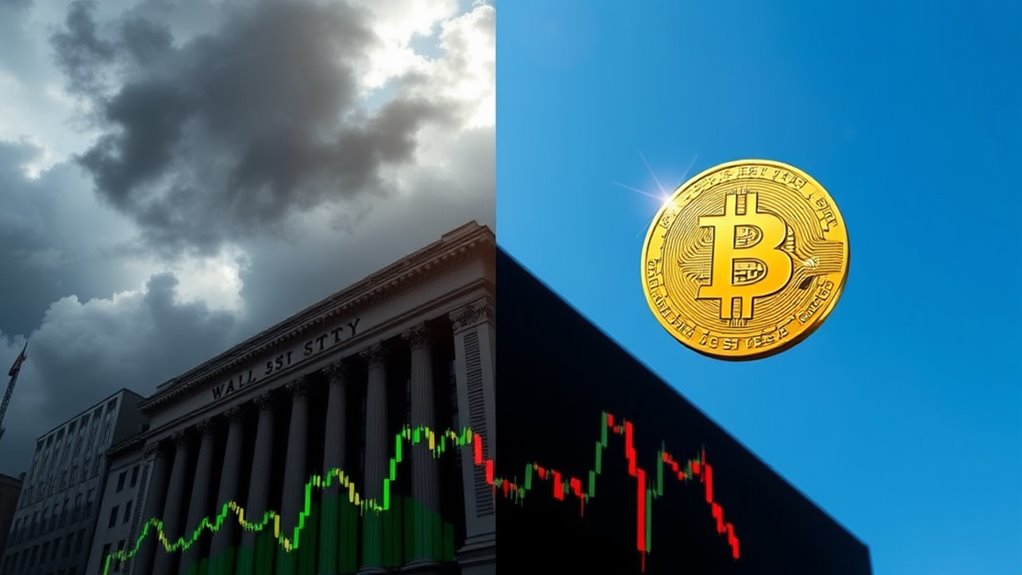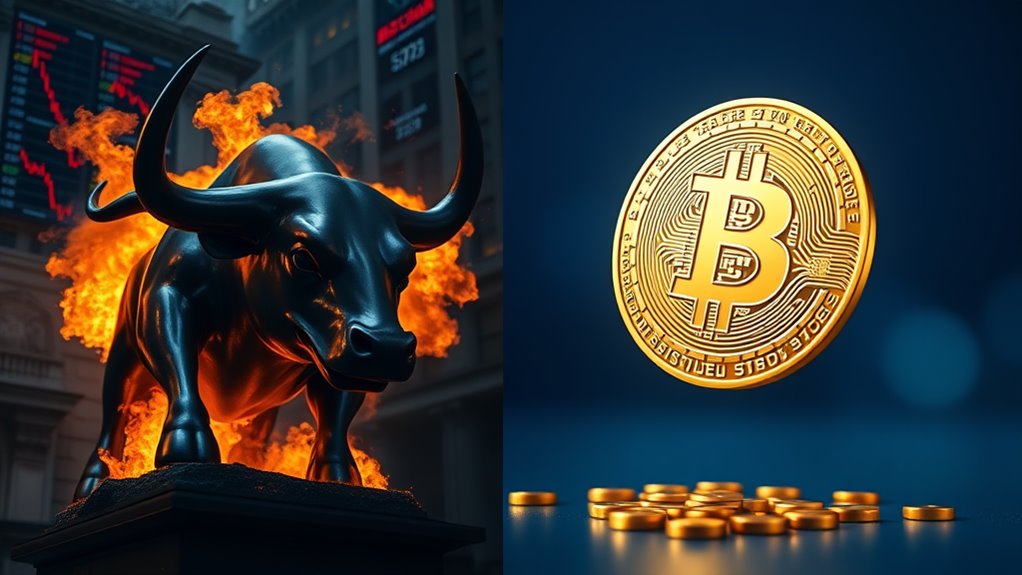While Wall Street Burns, Bitcoin Defies Gravity: The New Safe Haven?
Note: This post may contain affiliate links, and we may earn a commission (with No additional cost for you) if you make a purchase via our link. See our disclosure for more info. The crypto world is constantly changing. This content is for informational purposes only and not financial, legal, or professional advice So, please verify the info on the cryptocurrency provider’s websites.
 bitcoin as safe haven">
bitcoin as safe haven">Uncertainty looms over financial markets in 2025, and the battle for safe-haven supremacy rages on. Bitcoin has managed to stabilize around $81,000, while gold isn't exactly sleeping either, pushing to a hefty $2,917 per ounce. The economic waters are choppy, and investors are scrambling for lifeboats.
But is Bitcoin really the vessel you want in this storm?
Let's get real. Bitcoin's price movements still look suspiciously like tech stocks and the Nasdaq. When Nvidia jumps, so does Bitcoin. That's not what traditional safe havens do. They zig when markets zag. Gold has been doing this dance for centuries. When COVID-19 hit and markets tanked, gold rallied.
Bitcoin? It nosedived 50% in a single day. Not exactly confidence-inspiring.
The “digital gold” narrative sounds catchy in marketing materials. Sure, Bitcoin has a capped supply of 21 million coins. Yes, it's decentralized. But correlation doesn't lie. When Wall Street burns, Bitcoin often gets scorched too.
Institutional players like BlackRock are dabbling in Bitcoin, suggesting small allocations might make sense. But they're hardly abandoning their gold reserves or Treasury bonds. Smart money still views Bitcoin as the risky cousin in the family of assets, not the responsible uncle.
Bitcoin enthusiasts point to the future. Limited supply. Growing adoption. The math makes sense—on paper. But markets aren't purely rational. When panic strikes, investors still flee to the familiar: gold bars, Treasury bonds, and maybe under their mattresses. Not digital wallets.
Gold's tangible value and historical track record make it the reigning champion of crisis investing. Bitcoin's reliance on network infrastructure and trust makes it vulnerable during true calamities. During Trump's inauguration, we saw how Bitcoin dropped 25% in value while gold continued its steady climb.
What happens to your digital assets when systems fail?
The verdict? Bitcoin isn't yet a proven safe haven. It's more like a fascinating experiment with promising features. Until it stops mimicking equities during market corrections, calling Bitcoin a safe haven is premature. Gold's 5,000-year head start isn't overcome in a decade.
The Atlanta Fed's GDPNow model shows economic contraction forecasts of 2.4% for Q1 2025, adding further uncertainty to Bitcoin's safe-haven status.










